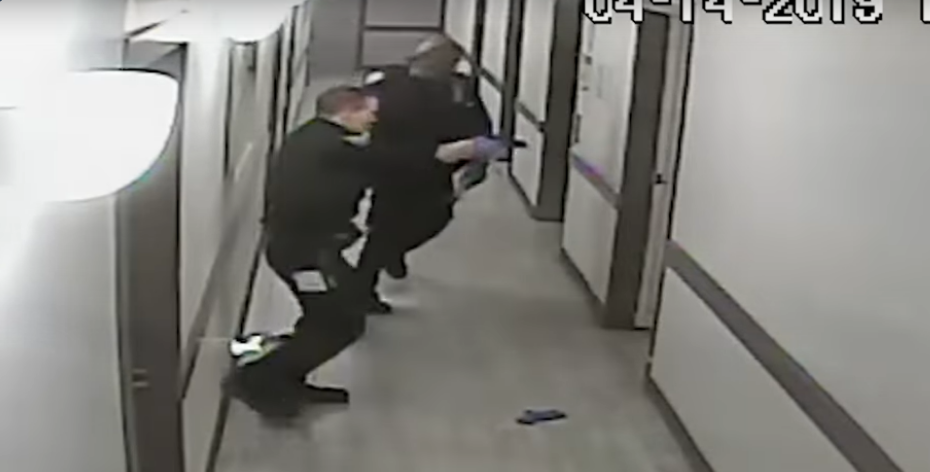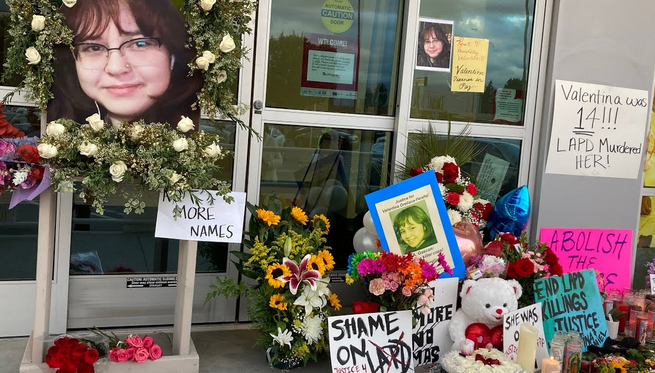…his eye-opening investigation revealed that Koreans have come to control virtually every aspect of the multi-billion dollar, Black hair care industry, from manufacturing to distribution to retail sales, while simultaneously employing tactics to put African-American merchants and wholesalers out of business.
Aron Ranen is a gifted filmmaker and professor who has received a litany of accolades for his groundbreaking documentaries, along with a couple of fellowships from the National Endowment for the Arts. Here he talks about his latest opus, Black Hair, an incendiary expose’ which is currently generating plenty of conversation in African-American communities all across the country. For his eye-opening investigation revealed that Koreans have come to control virtually every aspect of the multi-billion dollar, Black hair care industry, from manufacturing to distribution to retail sales, while simultaneously employing tactics to put African-American merchants and wholesalers out of business.
BSN: How did a white guy like you develop an interest in the Black hair care industry?
AR: I made a TV pilot with an African-American host, comedian Chey Bell who also happens to cut hair. She told me about all the dollars Black women spend on their hair. I was amazed, and decided to make a fun film about that. But when I began shooting in Oakland at a hair expo, I met some Black folks who told me of the Korean takeover.
BSN: How did you decide to make a movie about it?
AR: I knew that the Black hair biz has the potential to bring dollars and
employment to inner city neighborhoods. I decided that if my skills as a filmmaker can help, then that’s my path.
BSN: Did you learn a lot about the history of the industry as you researched the subject?
AR: You should have seen my reaction when someone first told me about Madame CJ Walker…I mean, come on…this thing is fixable, doable and the film can help. And I hope Oprah leaves her legacy, just like Madame CJ, and opens up a thousand Black beauty supply shops with training, and product discounts for the employees.
BSN: Were you surprised to learn the extent of Korean domination of the hair care market?
AR: No.
BSN: Why did you put your movie on the Internet in several installments?
AR: To comply with the rules of YouTube.com.
BSN: Won’t that hurt potential film sales?
AR: Perhaps… Is there money in documentary?
BSN: Ask Michael Moore. He made over $100 million with Fahrenheit 9/11. Is what the Koreans are doing, the way they’ve gone about taking control of the manufacture, wholesale distribution and retail sales of Black hair-care products illegal?
AR: We would need help from the NAACP to determine that. I am a filmmaker not an attorney.
BSN: Playing Devil’s advocate, let me ask you if it’s a form of reverse-racism to suggest that Black consumers should only buy from Black businesses?
AR: Just think, it’s a business in which 99% of the customers are Black, and 99% of the owners are Korean… That just seems a little off…don’t you
think?
BSN: Yep. What has been the response of Blacks, whites and Koreans to your film?
AR: White people say it’s one-sided, Koreans don’t like it either, but
African-Americans give me hugs and tell me to ignore the white people.
BSN: Do you think Black people will now organize and change their behavior after being educated by your documentary?
AR: I think it will take investment bankers like William Lewis and Vernon Jordan, and major media figures like Oprah, Ed Bradley, Spike Lee, or Sean Combs to take this to the next step in terms of economic development. I mean, these giant foundations give micro-grants to poor Africans in the Sudan for pottery businesses, why can’t some of that seed money go to develop Black-owned, retail hair supply stores in America?
BSN: Were you surprised when one of the Black distributors featured in your film was arrested for arson for allegedly attempting to burn down a Korean competitor who opened up down the street from him?
AR: I have no comment, since I have not seen any of the exact charges.
BSN: How did he get caught?
AR: Are you trying to get me in trouble?
BSN: I’m just asking logical questions. Why do you think the Black community is so involved with their hair that they could be 10% of the population but purchase 80% of the hair care products?
AR: That’s not my area of expertise. My documentary is a simple story of the obvious truth that is out there for everyone to see. By shining the media light on it, perhaps we can spur some positive economic changes in neighborhoods that could use some good news.
BSN: When did you get interested in making movies?
AR: At the age of thirteen.
BSN: Why do you also teach filmmaking?
AR: It’s fun, and I get to meet people from all over the world who attend my workshops. I also learn a great deal by teaching, and thus become a better filmmaker. I teach “Organic Documentary” at my film school in San Francisco. People interested in learn how to make their own Black Hair-style expose’ should visit my website at www.dvworkshops.com.
BSN: What other projects are you working on now?
AR: A history of LSD in the Sixties is also up at YouTube.com I am looking for an investor to get it to feature-length.
BSN: Is Black Hair officially finished, or is it still a work in progress?
AR: Black Hair will only be done when we get stores open and effect some real change. Until then, I will always release updates on the web and on DVD.
To subscribe to or advertise in New York’s leading Pan African weekly investigative newspaper, please call (212) 481-7745 or send a note to











